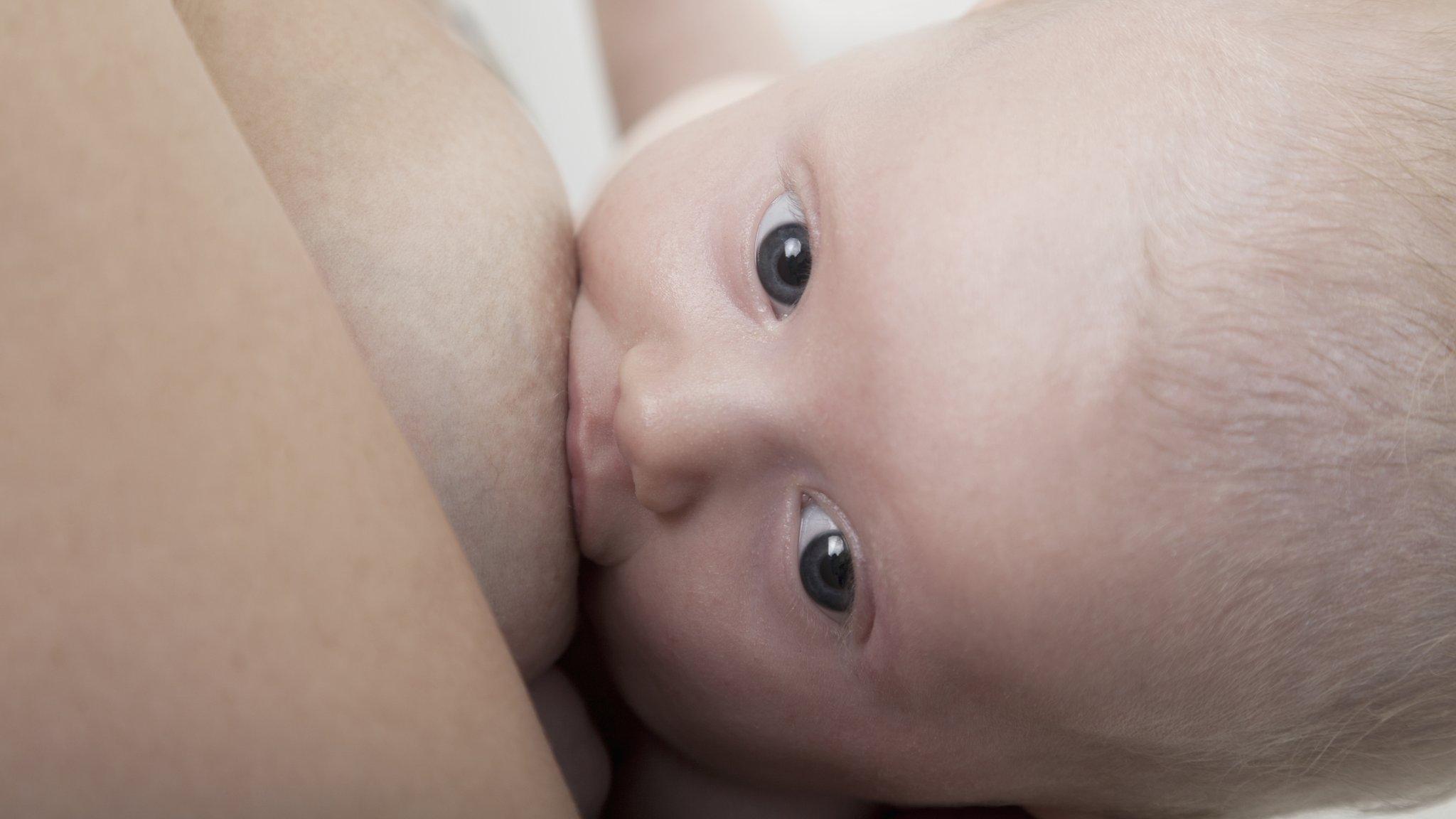Baby Dove adverts criticised over breastfeeding stance
- Published
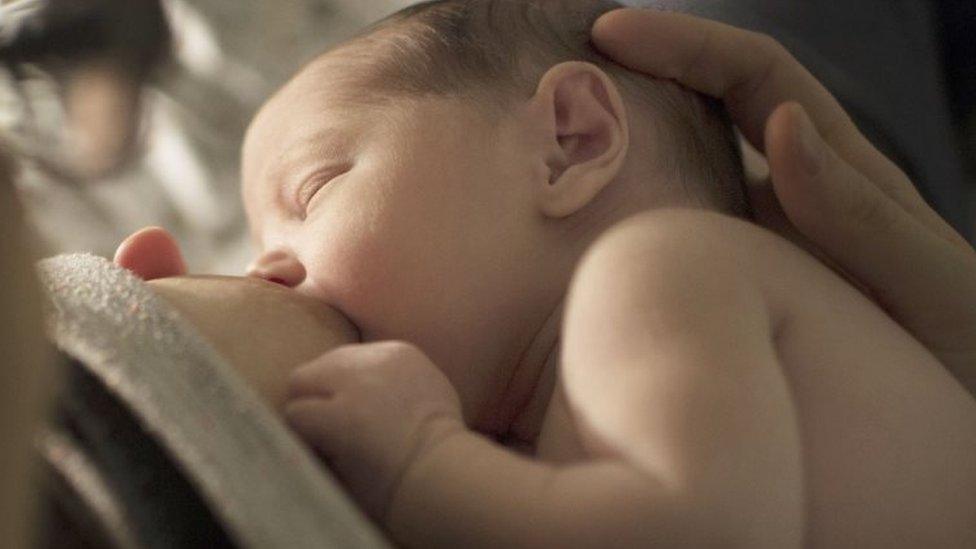
Skincare brand Baby Dove has been criticised by mums who say the company's new adverts support those who oppose breastfeeding in public.
One advert says "75% say breastfeeding in public is fine, 25% say put them away. What's your way?"
The Advertising Standards Authority has received 151 complaints, including concerns the ad perpetuates a negative image of breastfeeding in public.
Brand owner Unilever said it aims to celebrate different parenting styles.
Another Dove advert shows a crying baby accompanied by text that reads: "36% are for feeding him when he cries, 64% are passionately against it. What's your way?"
While the brand's website also reads: "So whether you're among the 66% who think that breastfeeding in public is fine, or the 34% who think otherwise, whatever choice you make, we are with you every step of the way."
But "Unmumsy Mum" blogger Sarah Turner said in an open letter to Dove, posted on Facebook, that supporting the "dangerous" view that it was acceptable to criticise breastfeeding in public could put mums off.
"No woman should be made to feel ashamed for feeding their baby in public," she wrote.
"If you are standing with people who think breastfeeding in public is not okay, are you also with them if they ask a breastfeeding mum to cover up, or if they think she would be better off sat feeding in a restaurant toilet?"
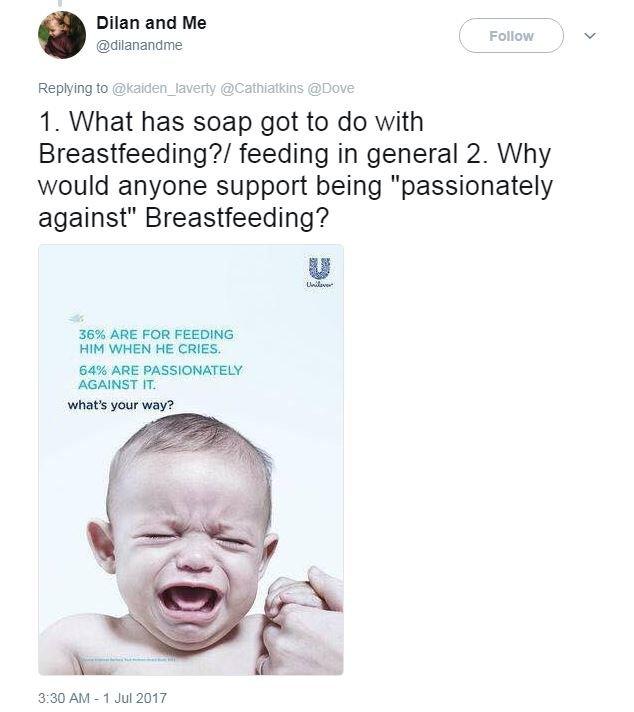
Baby Milk Action, a non-profit organisation, called the "What's your way?" campaign "seriously misguided".
In a Facebook post, external, it said: "Please do not be intimidated by the Dove marketing campaign condoning those who object to breastfeeding in public.
"It is illegal to discriminate against anyone for how they feed their child in public."
Emma Pickett, from the Association of Breastfeeding Mothers, said: "It's not anyone's 'way' to oppose it unless they fancy going to court or criminal action, and it's insulting to imagine that mums who formula feed automatically sympathise with people who dislike breastfeeding in public.
"This message intimidates new mums and that means increased isolation and greater risk of postnatal mental health issues."
'Different approaches'
Anna Burbridge, from support group La Leche League, agreed that women "need support and protection against unpleasant and aggressive comments, and advertising campaigns which ask what people think are unhelpful".
"Women do not have to 'put them away' and anything which implies they do contradicts the legal right of women to breastfeed."
Unilever responded to the criticisms in a statement, saying: "We believe there are many ways to be a great mum or dad.
"Our campaign simply aims to celebrate the different approaches and opinions around parenting, including whether or not mums choose to breastfeed in public, recognising that it's ultimately what works for you and your baby that matters the most."
Many have voiced their opinions on social media.
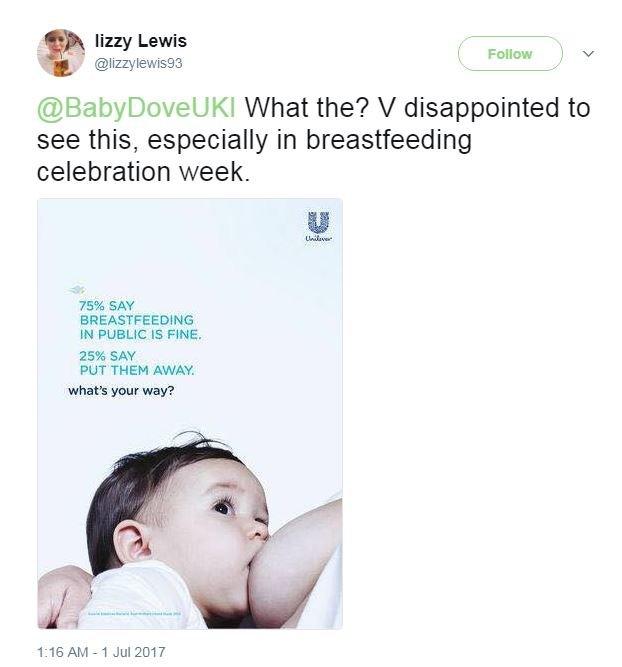
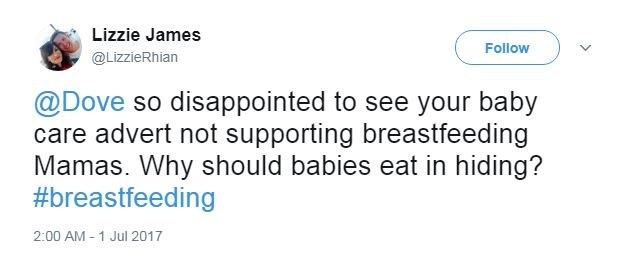
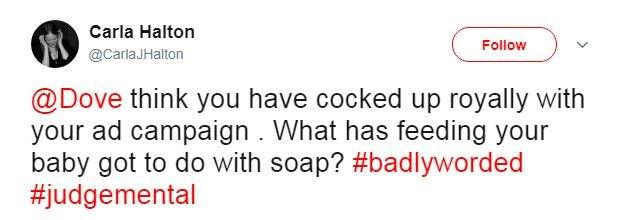
Bev Bevster said on Facebook she was "disgusted that Dove supports the discrimination of breastfeeding mothers" and "promotes child cruelty" by allowing babies to cry.
"What has any of this got to do with do with body products?"
Rhiannon Kendrick wrote: "I have just seen your ludicrous, sensationalist and downright upsetting Baby Dove advert. Who wants to see a picture of a crying baby for goodness sake?"
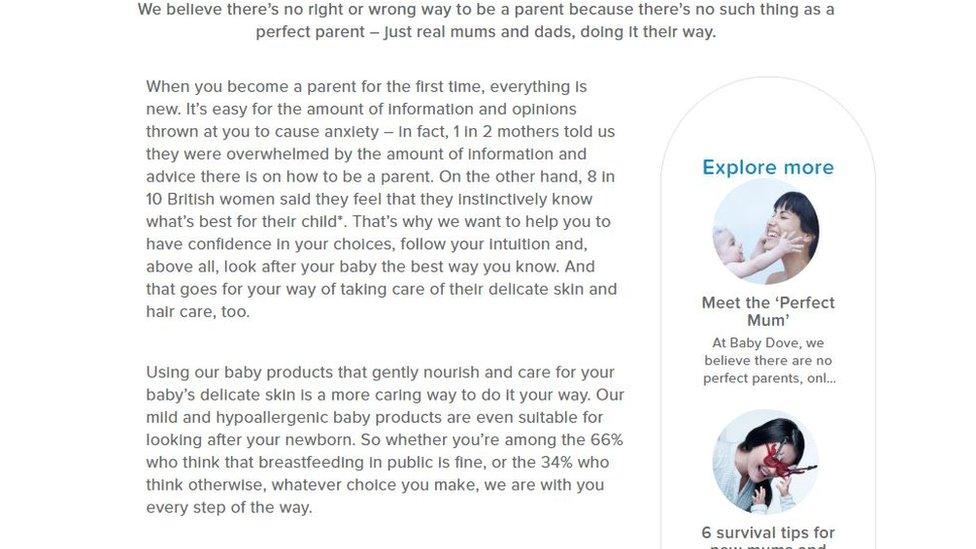
Some complaints have criticised the statistics quoted on Baby Dove's website
In England and Wales, it is illegal for anyone to ask a breastfeeding woman to leave a public place, such as a cafe, shop or public transport.
Scottish law makes it an offence to deliberately prevent or stop a person from feeding milk to a child in their charge in a public place or licensed premises.
Northern Ireland ministers have been considering legislation to protect mothers who breastfeed in public.
Last year, a study published in medical journal The Lancet found that the rates of breastfeeding in the UK were the lowest in the world.
The Advertising Standards Authority said the "general nature" of the complaints it had received were that it was not clear where the statistics were from.
The complaints said one advert encouraged a parenting style that was poor or neglectful, while the other perpetuated a negative perception of breastfeeding in public.
An ASA spokesman said the complaints were being assessed and no decision had yet been made on whether advertising rules had been broken.
- Published11 May 2017

- Published10 May 2017
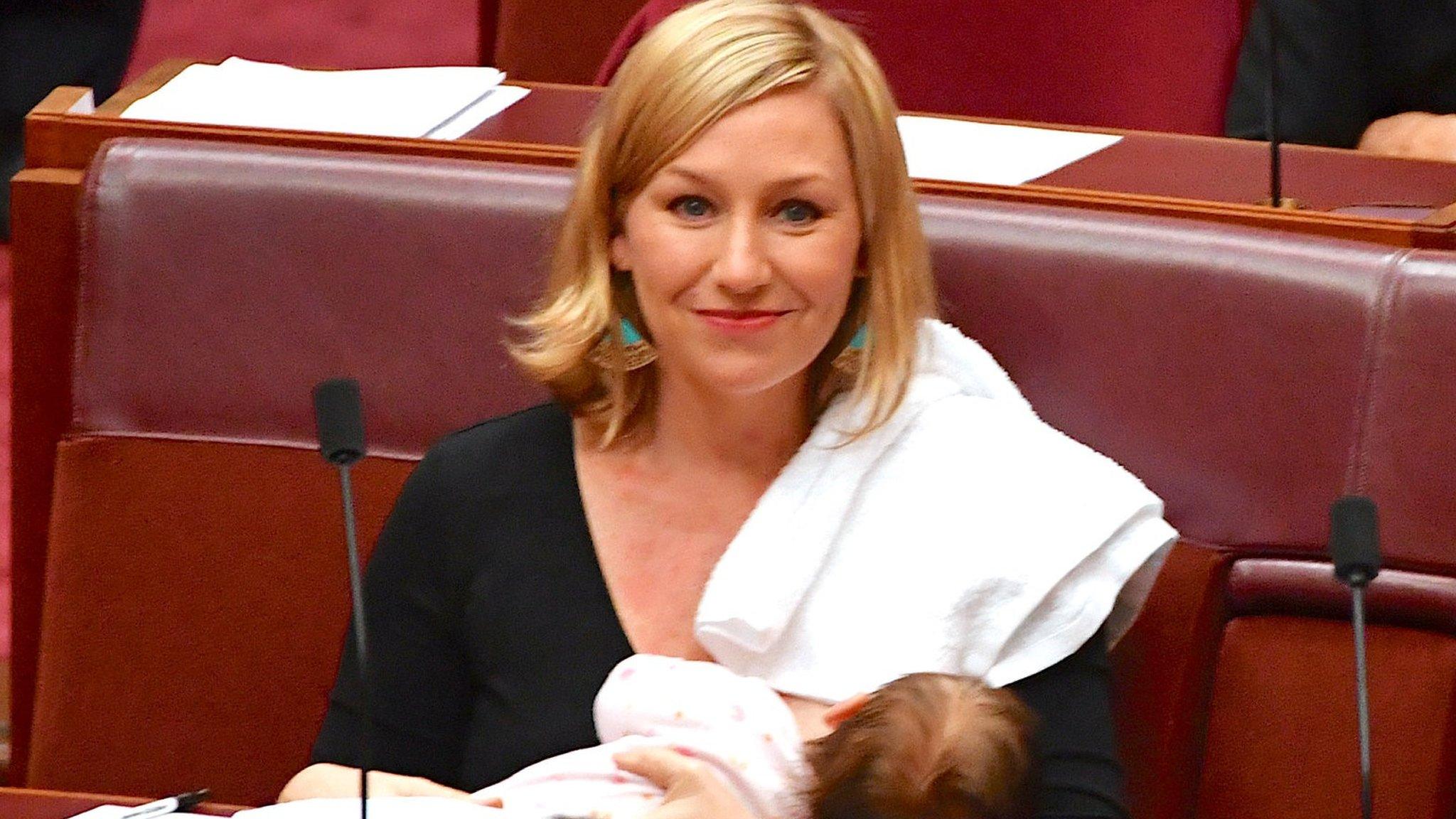
- Published12 February 2017
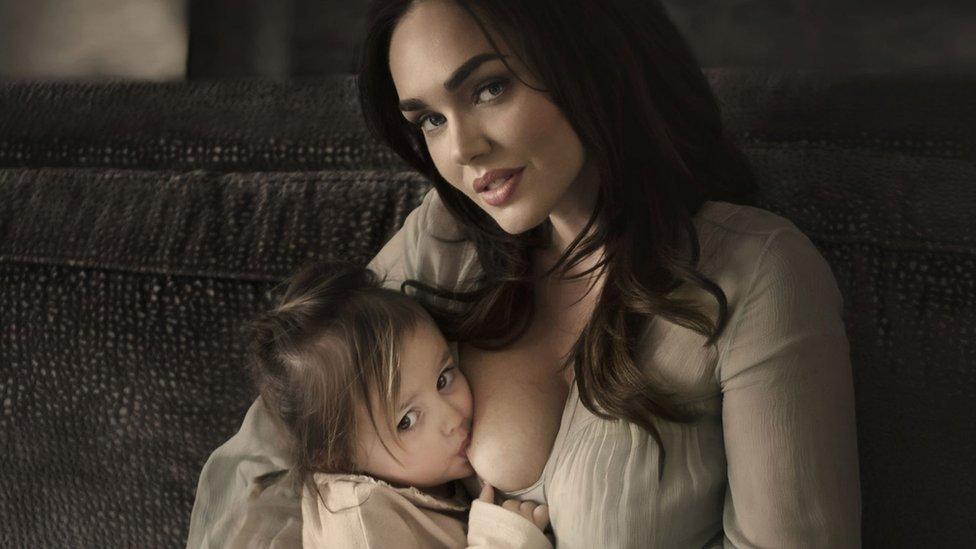
- Published10 February 2017
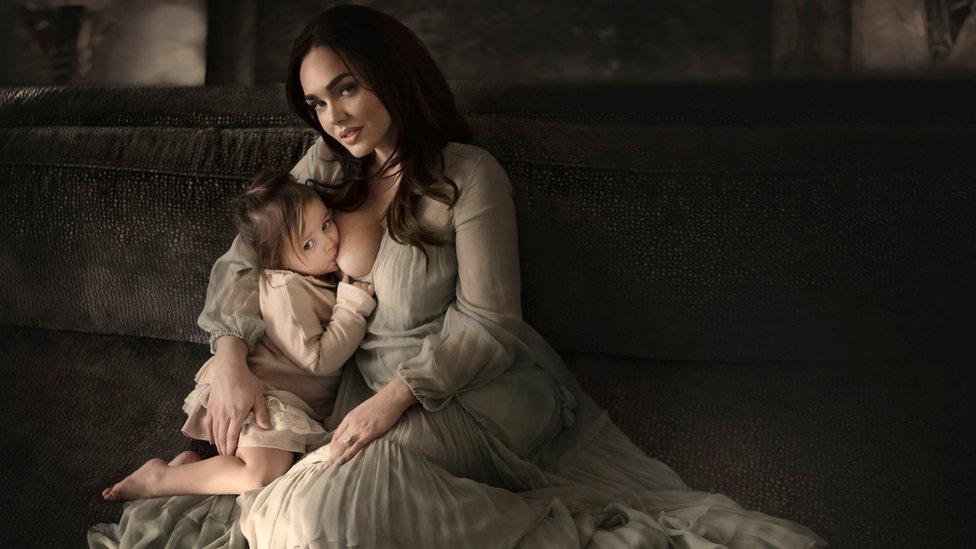
- Published29 January 2016
